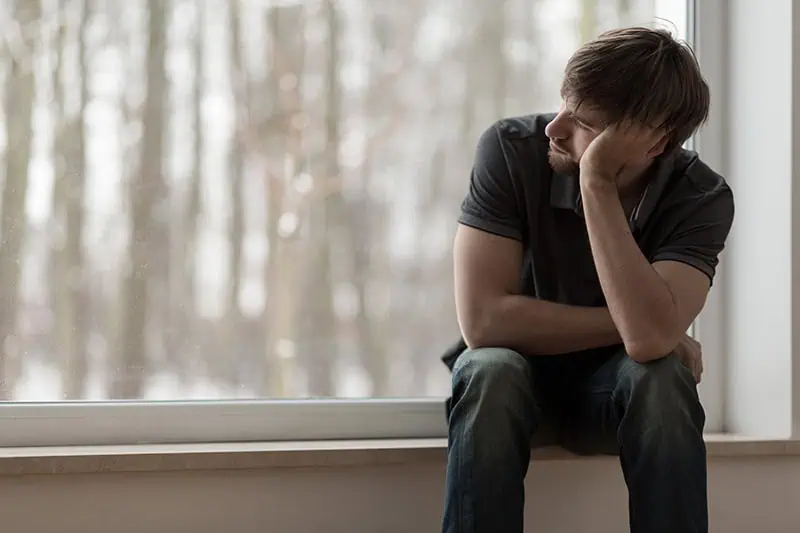The U.S. Department of Veterans Affairs estimates that about 6 out of every 100 people will have PTSD at some point in their lives. Trauma, left untreated, can interfere with not just your mental and physical health, but also your relationships with others. Sometimes, it can be difficult to recognize if you are struggling with unresolved trauma. Keep reading to learn more about the 17 symptoms of complex PTSD to better recognize them in yourself or a loved one.
At East Coast Recovery Center, we are a premier recovery center in Massachusetts that provides tailored addiction treatment to help patients break free from the chains of addiction. No longer do you have to suffer in silence with your addiction. We understand how isolating addiction and mental illness can be. That’s why our compassionate team of addiction specialists and mental health professionals are here to help you heal so you can lead a healthier, happier life. Contact us today to learn more about how we can support your recovery.
17 Symptoms of Complex PTSD to Look Out For
Complex PTSD (C-PTSD) is a type of post-traumatic stress disorder that stems from experiencing repeated trauma. This may look like living with a physically abusive partner or experiencing the ongoing violence associated with war. Unlike traditional PTSD, which is a specific event (i.e. getting into a severe car accident), complex PTSD again is a prolonged experience or situation that occurred over a period of time.
Interested in learning more about what are the 17 symptoms of complex PTSD? Keep reading below!

- Difficulty Trusting Others
Complex PTSD can make it difficult to trust others because you may have gone through a break of trust in the past from your traumatic experiences.
- Feeling Shame or Guilt
You may also carry feelings of shame or guilt that it was your fault you experienced the trauma from your past.
- Experiencing Flashbacks or Nightmares
Many who experience complex PTSD also experience flashbacks or nightmares that essentially relive the traumatic experiences of their past.
- Avoiding Certain People, Places, or Situations
Similarly, many people who struggle with unresolved complex PTSD may avoid certain people, places, or situations entirely for fear of being triggered and reliving the traumatic experiences of their past.
- Being Hyper-Aware
Being hyper-aware or hypervigilant of others or your surroundings are other common symptoms of complex PTSD to look out for.
- Sleep Problems, Like Insomnia
If you suffer from sleep problems, like insomnia, this is another symptom you may be struggling with complex PTSD.
- Mood Swings
Next, if you struggle with mood swings, where one minute you feel “fine” but the next you are upset, anxious, or irritated, this is another sign you could be struggling with unresolved trauma and complex PTSD.
- Negative Physical Symptoms
If you are experiencing negative physical symptoms, like stomach problems or extreme fatigue, these are more signs of complex PTSD to look out for.
- Using Unhealthy Coping Strategies
Abusing unhealthy coping strategies to cope with your complex PTSD, such as abusing drugs or alcohol, is another sign to look out for.
- Difficulty Making Meaningful Connections with Others
If you find you have trouble connecting with others, or you put up a “wall” in relationships due to a break of trust in your past, this is another symptom.
- Numbing or Disassociation
Similar to turning to unhealthy coping strategies, if you find you turn to coping strategies to numb or disassociate to escape from past trauma, this is another sign to look out for.
- Feeling Isolated or Alone
Isolation and feeling like you are alone is another symptom to look out for. This is especially true as a lack of trust in relationships can inevitably increase your sense of isolation from others.
- Difficulty Focusing
Many with complex PTSD may also have a hard time concentrating because they are worried about the past and their trauma.
- Constantly Feeling Anxious
If you are constantly feeling anxious, stressed, or “on edge” that something bad will go wrong, these are more symptoms to look out for.
- Consistently “Reliving” Your Trauma
As explained above, “reliving” your trauma, whether having flashbacks or nightmares is a common symptom of complex PTSD to look out for.
- Increase in Anger or Irritability
An often overlooked symptom of complex PTSD is also if you find you are more angry or irritable than usual.
- Sudden Emotional Reactions/Instability
Similarly, if you find you are getting in more sudden emotional outbursts or reactions than usual, or your emotions in general are unstable because of your unresolved trauma, this is another symptom to look out for.
Help Is Available
Now you know more about the 17 symptoms of complex PTSD. Left untreated, complex PTSD can harm virtually all areas of your life for the worse. This is why it’s essential you seek professional treatment if you suspect you or someone you know may be struggling with this condition.
At East Coast Recovery Center, our compassionate team of mental health professionals and addiction specialists are here to help you safely and effectively overcome your addiction and lead a healthier life. Whether you are struggling with a substance use disorder or dual diagnosis, we provide a comprehensive range of treatment options and programs to help support your road to recovery. Contact us today to learn more about how we can best support your road to recovery.










